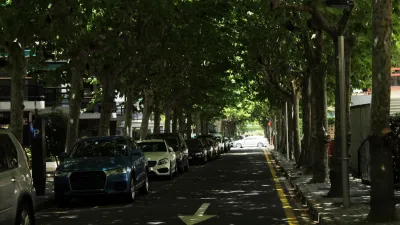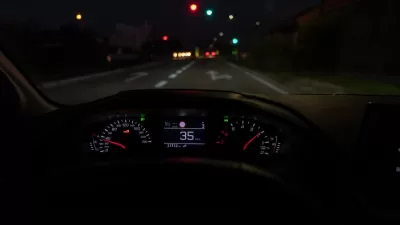Roads and bridges are crumbling in America. The Highway Trust Fund is broke and new revenue other than stimulus funds are unlikely, so some state transportation officials are applying innovative methods to spread the road funding they have secured.
"Money isn't all that's needed, experts say. A solution also will require new ideas about how we design, build, finance, and maintain our transportation backbone. Missouri's transportation boss, Pete K. Rahn, decided something had to change.
The problem, he believed, was that highway engineers invariably tried to build the best roads possible. But what if Missourians didn't always need the best roads possible? What if they were willing to settle for good enough? His answer was a new road-building doctrine he called "Practical Design."
"Today, when Missouri engineers design highways, they aim "not to build perfect projects, but to build good projects that give you a good system," says Rahn. Practical Design says to "start at the bottom of the standards and go up to meet the need."
"Pennsylvania's Smart Transportation initiative calls on engineers to re-examine all of their assumptions. "The old style was that if we had a road that was congested, we'd project the traffic out 25 years and add lanes," says Allen D. Biehler, the state's transportation secretary.
When Pennsylvania couldn't afford a long-planned, $465 million freeway north of Philadelphia, Biehler brainstormed with communities along the 8.4-mile route and found a cheaper alternative: a parkway bordered with trees and bike trails. Work on the $200 million project began in November."
FULL STORY: How We Can Save Our Roads

Maui's Vacation Rental Debate Turns Ugly
Verbal attacks, misinformation campaigns and fistfights plague a high-stakes debate to convert thousands of vacation rentals into long-term housing.

Planetizen Federal Action Tracker
A weekly monitor of how Trump’s orders and actions are impacting planners and planning in America.

In Urban Planning, AI Prompting Could be the New Design Thinking
Creativity has long been key to great urban design. What if we see AI as our new creative partner?

King County Supportive Housing Program Offers Hope for Unhoused Residents
The county is taking a ‘Housing First’ approach that prioritizes getting people into housing, then offering wraparound supportive services.

Researchers Use AI to Get Clearer Picture of US Housing
Analysts are using artificial intelligence to supercharge their research by allowing them to comb through data faster. Though these AI tools can be error prone, they save time and housing researchers are optimistic about the future.

Making Shared Micromobility More Inclusive
Cities and shared mobility system operators can do more to include people with disabilities in planning and operations, per a new report.
Urban Design for Planners 1: Software Tools
This six-course series explores essential urban design concepts using open source software and equips planners with the tools they need to participate fully in the urban design process.
Planning for Universal Design
Learn the tools for implementing Universal Design in planning regulations.
planning NEXT
Appalachian Highlands Housing Partners
Mpact (founded as Rail~Volution)
City of Camden Redevelopment Agency
City of Astoria
City of Portland
City of Laramie





























